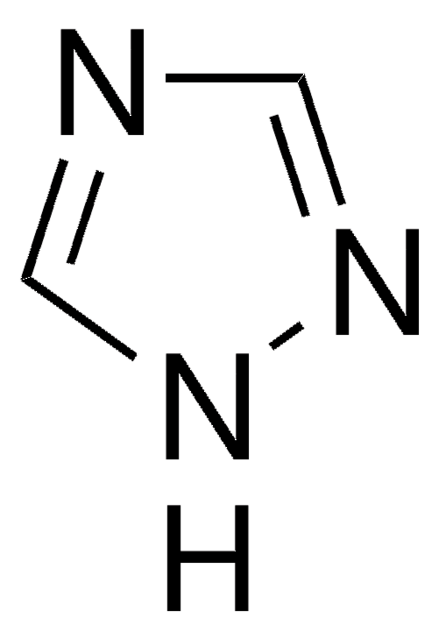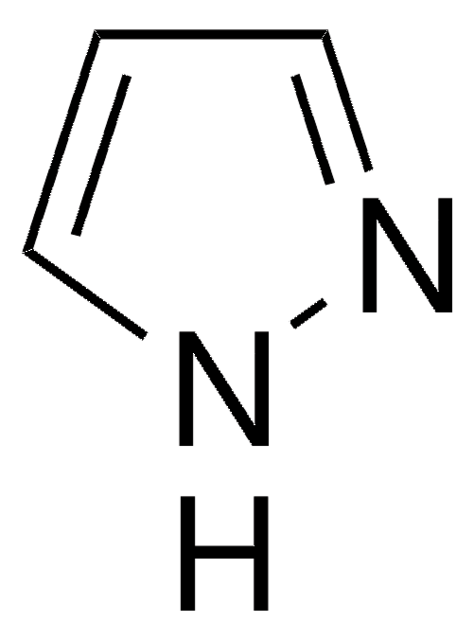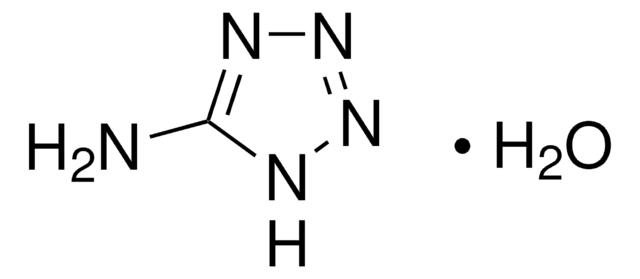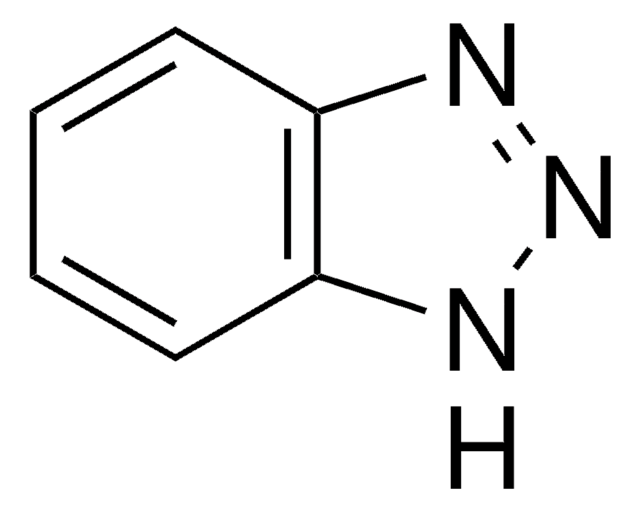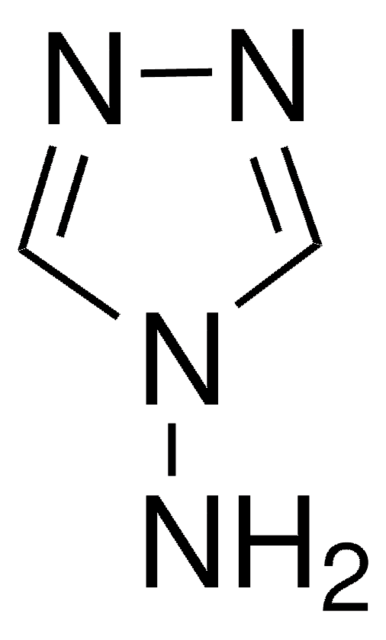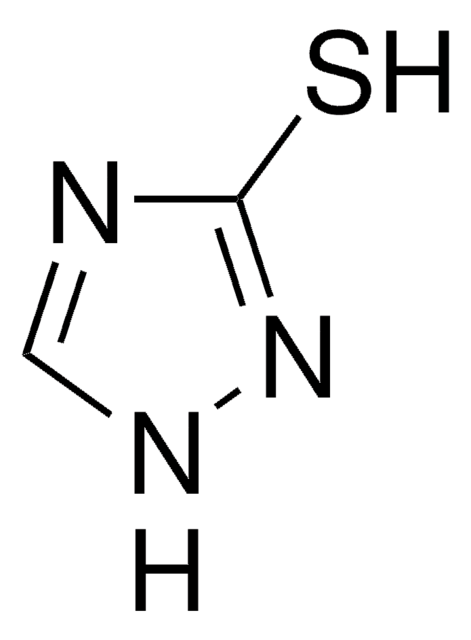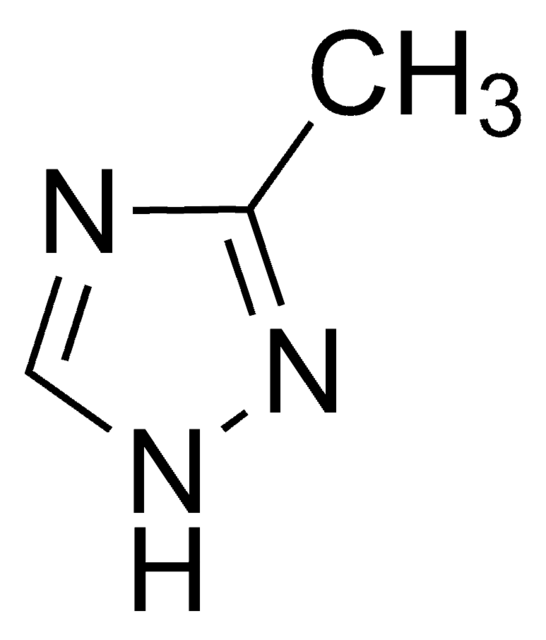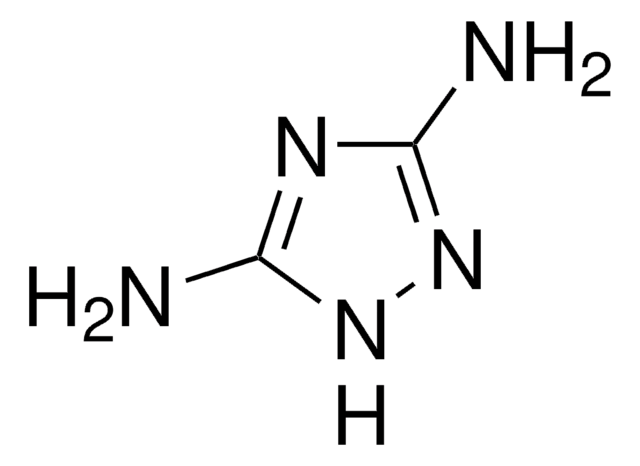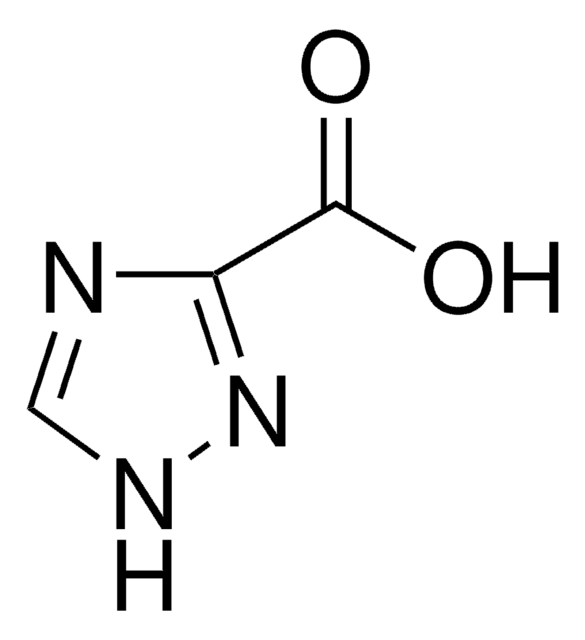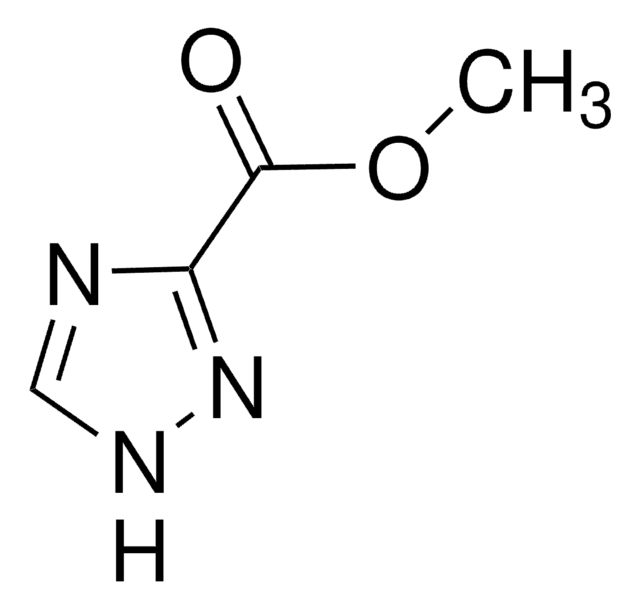333662
1H-1,2,3-Triazole
97%
Synonym(s):
2,3-Diazapyrrole, 2H-1,2,3-Triazole, Osotriazole, Pyrrodiazole, Triazacyclopentadiene
Sign Into View Organizational & Contract Pricing
All Photos(1)
About This Item
Empirical Formula (Hill Notation):
C2H3N3
CAS Number:
Molecular Weight:
69.07
MDL number:
UNSPSC Code:
12352100
PubChem Substance ID:
NACRES:
NA.22
Recommended Products
Quality Level
Assay
97%
form
liquid
refractive index
n20/D 1.498 (lit.)
bp
203 °C/752 mmHg (lit.)
mp
23-25 °C (lit.)
density
1.192 g/mL at 25 °C (lit.)
SMILES string
c1c[nH]nn1
InChI
1S/C2H3N3/c1-2-4-5-3-1/h1-2H,(H,3,4,5)
InChI key
QWENRTYMTSOGBR-UHFFFAOYSA-N
General description
2H-1,2,3-triazole is tautomeric form of 1H-1,2,3-triazole. 1H-1,2,3-triazole effectively promotes the proton conduction in polymer electrolyte membranes via an intermolecular proton-transfer mechanism.
Application
- Crystalline framework materials: Research on triazole carboxylic acid ligand has demonstrated its application in smart crystalline framework materials, notably for fluorescence sensing and catalytic reduction of p-nitrophenol, illustrating its utility in chemical sensing and environmental applications (Lv et al., 2023).
- PXR receptor modulation: 1H-1,2,3-Triazole-4-carboxamides have been optimized as potent and selective inverse agonists and antagonists of the PXR receptor, providing insights into the design of receptor-specific drugs (Li et al., 2022).
- Large-scale synthesis: The large-scale synthesis of a Notum inhibitor employing a modified Sakai reaction illustrates the importance of 1H-1,2,3-triazole in the production of biochemical reagents, which can be essential in medical research and drug development (Atkinson et al., 2022).
Signal Word
Warning
Hazard Statements
Precautionary Statements
Hazard Classifications
Eye Irrit. 2 - Skin Irrit. 2 - STOT SE 3
Target Organs
Respiratory system
Storage Class Code
10 - Combustible liquids
WGK
WGK 3
Flash Point(F)
224.6 °F - closed cup
Flash Point(C)
107 °C - closed cup
Personal Protective Equipment
dust mask type N95 (US), Eyeshields, Gloves
Choose from one of the most recent versions:
Already Own This Product?
Find documentation for the products that you have recently purchased in the Document Library.
Customers Also Viewed
Zhen Zhou et al.
Journal of the American Chemical Society, 127(31), 10824-10825 (2005-08-04)
We report 1H-1,2,3-triazole as an active group to dramatically enhance proton conduction in a polymer electrolyte membrane (PEM). The conductivities of a poly(4-vinyl-1H-1,2,3-triazole) membrane without any acidic dopants are about 105 times greater than those of poly(4-vinylimidazole) in dry air
Atul Bhardwaj et al.
Nature communications, 8(1), 1-1 (2017-02-25)
Cyclooxygenase-2 isozyme is a promising anti-inflammatory drug target, and overexpression of this enzyme is also associated with several cancers and neurodegenerative diseases. The amino-acid sequence and structural similarity between inducible cyclooxygenase-2 and housekeeping cyclooxygenase-1 isoforms present a significant challenge to
Fong-Fong Chu et al.
World journal of gastroenterology, 22(46), 10158-10165 (2016-12-29)
To test whether Nox1 plays a role in typhlitis induced by Salmonella enterica serovar Typhimurium (S. Tm) in a mouse model. Eight-week-old male wild-type (WT) and Nox1 knockout (KO) C57BL6/J (B6) mice were administered metronidazole water for 4 d to
Amanda R Robinson et al.
PLoS pathogens, 8(2), e1002516-e1002516 (2012-02-22)
The Epstein-Barr virus (EBV) latent-lytic switch is mediated by the BZLF1 immediate-early protein. EBV is normally latent in memory B cells, but cellular factors which promote viral latency specifically in B cells have not been identified. In this report, we
Kashif Mahmood et al.
International journal of molecular sciences, 20(24) (2019-12-11)
NAC (NAM (no apical meristem), ATAF1/2, and CUC2 (cup-shaped cotyledon)) proteins are one of the largest families of plant-specific transcription factors, and this family is present in a wide range of land plants. Here, we have investigated the role of
Our team of scientists has experience in all areas of research including Life Science, Material Science, Chemical Synthesis, Chromatography, Analytical and many others.
Contact Technical Service